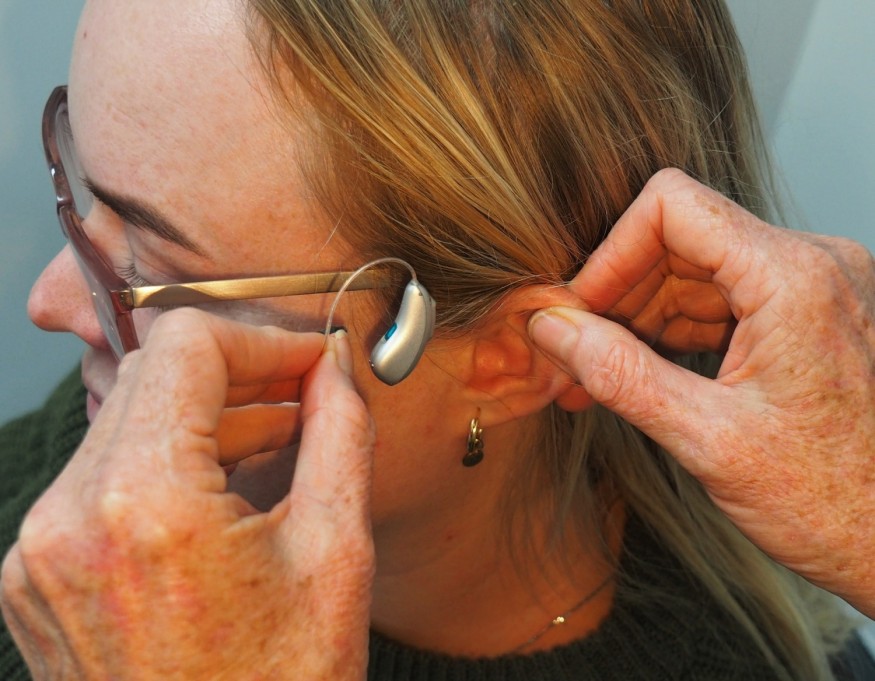
Navigating the world of hearing assistance devices can often be challenging, particularly when trying to figure out the little differences between hearing aids and hearing amplifiers. Luckily, this blog post aims to demystify these differences to help you make an informed choice for your hearing needs.
Understanding Hearing Aids
Hearing aids are complex, custom-fitted devices designed to accommodate specific types and degrees of hearing loss. They use digital technology to process sound, reducing background noise and enhancing speech clarity. This function is achieved by a series of algorithms which are tailored to match the wearer's unique hearing loss profile. More than simply making sounds louder, hearing aids adjust the volume based on the frequency or pitch of sounds. They can connect wirelessly to smart devices, making them more versatile in today's interconnected world.
Modern Innovations in Hearing Aids
As technology continues to evolve, so do the features and capabilities of hearing aids. Modern hearing aids not only offer personalized sound amplification but also boast features like rechargeable batteries, tinnitus masking, and wireless connectivity to smart devices. Some even offer language translation and fall detection. These advancements make hearing aids an integrated part of the user's lifestyle, enhancing not just their hearing experience but also their overall quality of life.
The Role of Hearing Amplifiers
Hearing amplifiers, on the other hand, are simpler devices intended to increase the volume of sounds. They do not differentiate between the types of sounds they amplify; hence, they raise the volume uniformly, without regard to pitch or frequency. This feature makes them unsuitable for individuals with significant hearing loss or those who need specific frequencies amplified. They are typically off-the-shelf devices and do not require a prescription, making them a more accessible, yet less tailored, option for those who need a volume boost.
When to Consider Hearing Amplifiers
Though they lack the customizability and advanced features of hearing aids, hearing amplifiers can be useful in specific situations. If you have normal hearing but struggle to hear in certain scenarios, like when the TV is on a low volume or during a distant conversation, a hearing amplifier may be just what you need. It's a less expensive and easily accessible solution that can offer an immediate boost in volume. However, these devices should not be used as a substitute for hearing aids without the advice of an audiologist.
Technological Differences
The primary difference between hearing aids and hearing amplifiers lies in their technological approach to sound management. Hearing aids are sophisticated devices with digital sound processing capabilities. They can filter and enhance specific frequencies, suppress background noise, and even adjust to the acoustic characteristics of different environments. This level of sound management provides an overall improved listening experience that takes into account the nuances of human hearing.
Suitability for Different Types of Hearing Loss
Hearing aids are typically prescribed for individuals with mild to profound hearing loss. They're recommended based on a comprehensive audiological evaluation that determines the nature and extent of the hearing loss. On the contrary, hearing amplifiers are best suited for individuals with normal hearing who need occasional assistance, like listening in on a lecture. It's crucial to consult with an audiologist before choosing either device, mainly to ensure that you receive the most suitable solution for your hearing needs.
Price Considerations
There's a significant difference in cost when comparing hearing aids to hearing amplifiers. Hearing aids are generally more expensive due to the advanced technology they contain and the customization process involved in fitting them to a user's specific needs. On the other hand, hearing amplifiers, due to their generic nature and simpler technology, are more affordable and readily available. This price difference can be a deciding factor for many people, although it's important to remember that investing in the appropriate hearing solution will yield the best results in the long run.
The Importance of Professional Assessment
Before making a decision on the right hearing assistance device for you, it's essential to get a professional hearing assessment. An audiologist will perform comprehensive tests to diagnose the type, degree, and configuration of your hearing loss, if any. This evaluation will then provide the foundations for the most suitable device to be recommended. Beyond diagnosis, a professional assessment can also reveal underlying health issues causing the hearing impairment, such as an ear infection, excessive earwax, or more serious conditions like an acoustic neuroma.
When comparing hearing aids and hearing amplifiers, one must consider personal hearing needs, lifestyle, and budget. While hearing aids offer advanced sound processing, customization, and improved sound quality, they come with a higher price tag. Hearing amplifiers provide a simpler, more affordable solution but lack the sophistication to accommodate more complex hearing loss situations. Ultimately, the choice between the two should be made after careful consultation with a hearing care professional.
© 2025 NatureWorldNews.com All rights reserved. Do not reproduce without permission.





